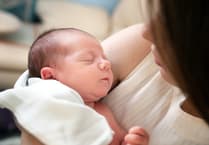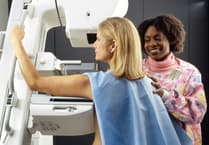The Health Minister says carrying out temperature checks on passengers arriving by air and sea would be ’completely ineffectual’ in containing coronavirus.
A number of international airports are carrying out entry screening including the use of thermal scanners and handheld thermometers.
But Health Minister David Ashford said there are no plans to introduced these at Ronaldsway or the Sea Terminal. The UK has the same policy for its ports.
He said: ’Unfortunately there are no accurate checks that can be undertaken in relation to identifying the virus at ports and entry points.
’The only check that could be undertaken is via temperature guns which would seek to detect if anyone has a fever.
’The technology is wildly inaccurate and has failed on many occasions worldwide to pick up even those who do have fever.
’The virus also has a 14 day incubation period where the individual will show no symptoms but will still be contagious, this would not show up via the temperature test.
Of those that fully develop Covid-19, just as with normal winter influenza, not everyone displays a fever and again those individuals would not be detected.’
He added: ’While several countries have instigated temperature checks at ports in not one of those cases has it stopped, or even slowed, the rate of spread in those jurisdictions. So while port checks may look good for show in reality they are man power intensive and are completely ineffectual in containment.’
Asked about the effectiveness of using face masks, he said: ’There is no medical evidence that face masks are of any use either preventing infection or spread, in fact the tiny viral particles can penetrate masks.
’World Health Organisation advice is that if you are healthy you should only need to wear a mask if you are taking care of a person with Covid-19.’
The island’s public health directorate says that as with other types of viruses, the best method of preventing the spread of coronavirus is to practise good hand hygiene.
You should wash your hands with soap and water or a hand sanitiser when you get home or into work; low your nose, sneeze or cough; and at or handle food.
Prevent spreading by covering your nose and mouth with a disposable, single-use tissue when sneezing, coughing, wiping and blowing your nose.




